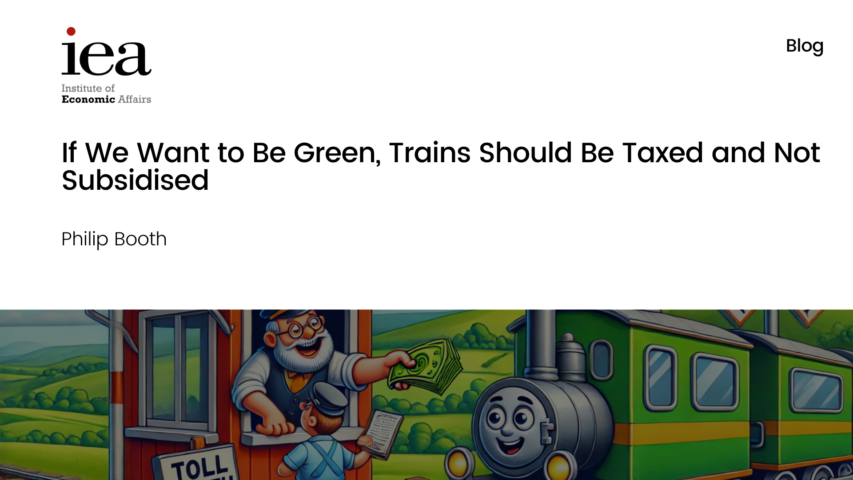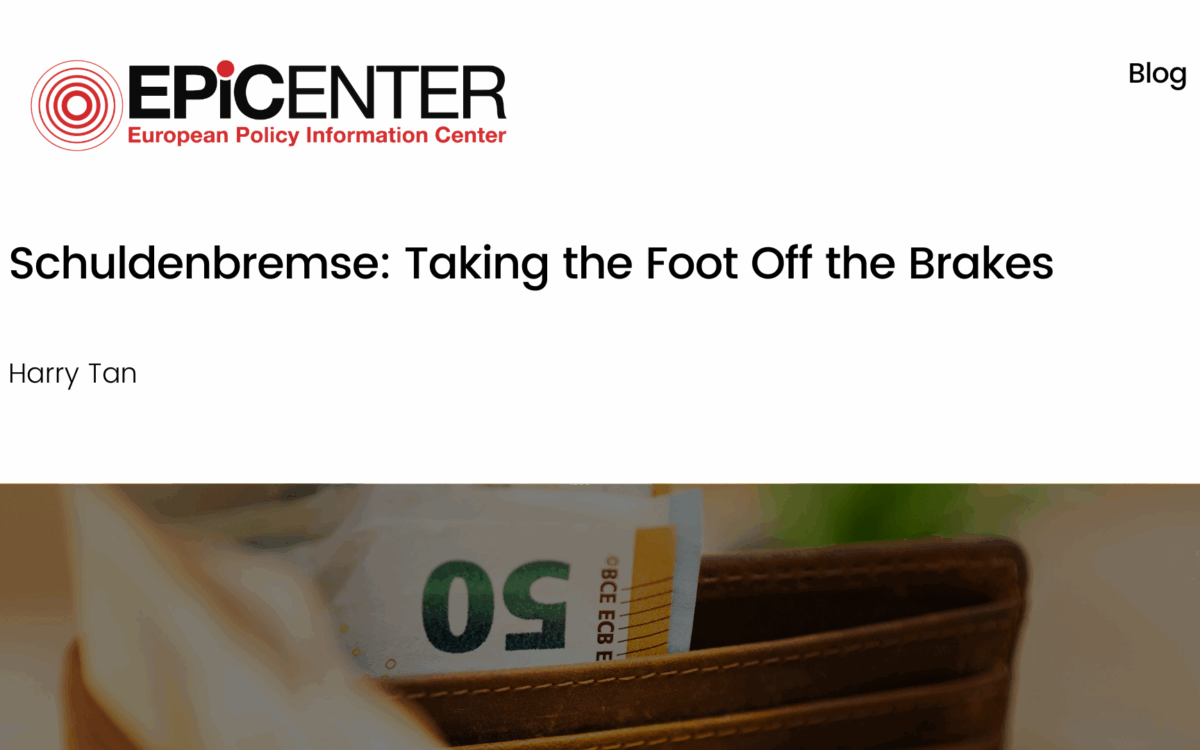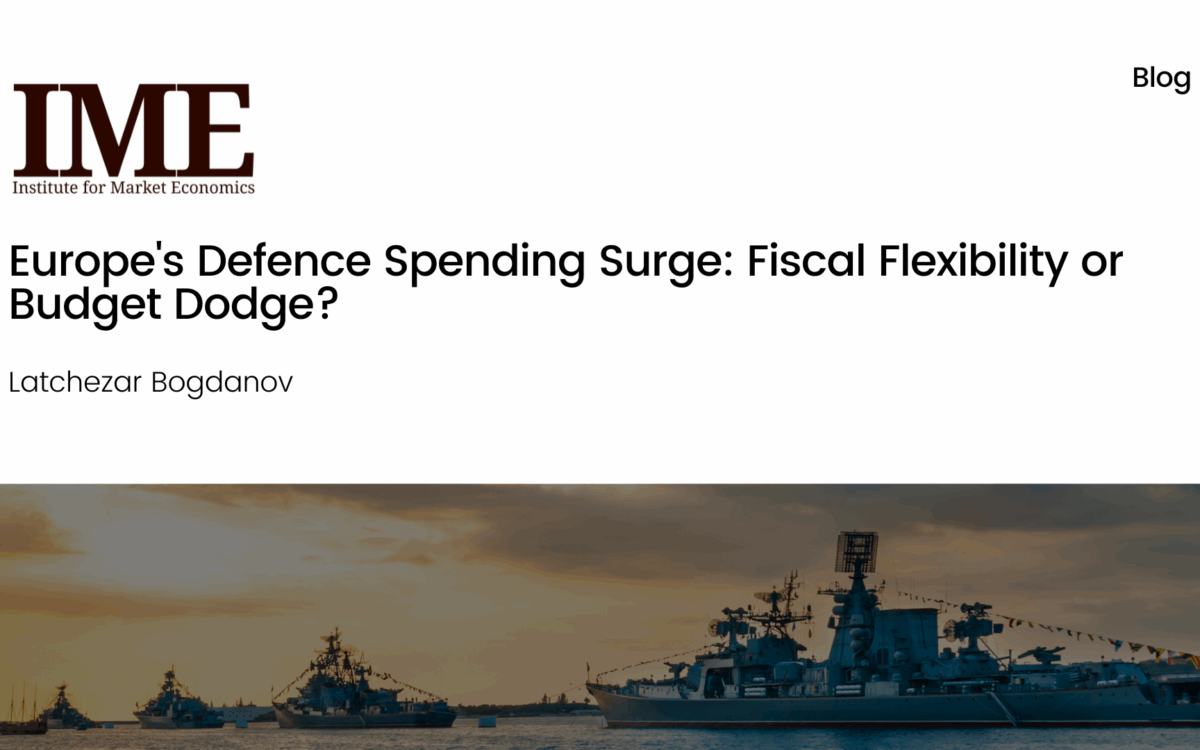If We Want to Be Green, Trains Should Be Taxed and Not Subsidised

If We Want to Be Green, Trains Should Be Taxed and Not Subsidised
Philip Booth // 15 January 2020
The argument made by many such as George Monbiot that the protection of the environment requires the destruction of capitalism has no credibility given the relative success of socialist and market economies when it comes to the protection of environmental resources. However, even on a less dramatic level, it is remarkable how poorly designed government policy is when it comes to climate change. We can have little faith in government intervention given its past and current record.
The latest fad seems to be increased subsidies for train fares. The German government is cutting rail fares and Luxembourg plans to make all mass transit free. Let’s put aside the many arguments against this from a general economic efficiency point of view and just focus on the green aspects.
These kinds of policies arise from the perception that the train competes against the plane in some areas of consumer decision making and against the car in others. A transfer from car or plane to train should lead to reduced carbon emissions. As someone who took their last main holiday entirely by train and intends to do the same thing in 2020 (if it is not scuppered by the French strikes), I have an intrinsic sympathy with the train as compared with the plane. That does not stop this policy from being bad economics and bad climate change policy.
Scenario one – ignoring the EU emissions trading scheme
Let’s assume we start from a position of no existing mechanisms to reduce carbon emissions from transport. The argument goes that the impact of a subsidy is to move people from high carbon methods of transport (cars and planes) to low carbon methods of transport (trains and buses).
Both planes and trains emit carbon: the former more than the latter. The argument for subsidies to trains comes from “second-best economics”. It is better, in theory, to tax both planes and trains with the taxes on planes being higher. However, if we start from a position of no taxes on planes, then the subsidies for trains should move people from the high-emitting to the low-emitting form of transport. This could have a similar benefit to taxing planes.
However, that is only one behavioural adjustment. In addition, there will be an increase in demand for transport in general. This will involve direct effects (for example, more people take train journeys at weekends because they are cheaper when they might have played football in the park, or businesses might organise physical conferences rather than using video conferences) and indirect effects (for example, people choose to live further from work and commute). These effects increase carbon emissions.
Which effect dominates? This depends on the “cross price elasticity of demand” for planes versus trains and for train travel versus all other goods. In simple language, if the number of people who switch from planes to trains is large and the number of people who decide to travel by train when they otherwise would not have travelled at all is small, then the measure might reduce carbon emissions. On the other hand, if the number of people switching from planes to trains is small as a result of the subsidy, but many more people travel more in general, then the measure will increase carbon emissions.
I should imagine that the politicians introducing these measures have never even thought about this, never mind tried to measure the relative effects.
Scenario two – train subsidies when airlines are subject to emissions trading
In fact, airlines operating in the EU have to buy permits to emit carbon when making journeys within the EU (journeys outside the EU are irrelevant to the argument as it is highly unlikely that train journeys will substitute for inter-continental flights). Airlines are part of the emissions trading scheme. In this case, subsidising trains is a “lose-lose” policy. If people move from planes to trains and fewer planes fly as a result, airlines will simply sell their carbon credits to another company (e.g. to a glass or a steel maker) so the reduced flights will have no benefit to the environment whatsoever and yet the additional train journeys will lead to extra carbon emissions. Furthermore, because train journeys are cheaper as compared with all other goods, more people will choose this mode of transport over other goods and services and this will also lead to more emissions. There will be indirect effects – people being more willing to commute, and so on, too. In this case, subsidising trains unambiguously increases carbon emissions unless there is a significant switch from cars to trains.
What is the best policy for the planet?
Unfortunately, politicians like giving away “free stuff” because they think it will make them popular. Free stuff has to be financed by taxes, of course, but those taxes tend to be hidden whereas the subsidies are obvious. That is why British governments, like many other governments, implicitly or directly subsidise energy consumption whilst trying to reduce carbon emissions.
In a world in which planes are subject to an emissions trading schemes and special taxes designed to cover the social costs of carbon emissions (which is the case in the EU), without question the correct policy is to tax other emitters, such as trains, even if they emit less carbon than planes or cars. Cars are already taxed to a level which almost certainly covers the social cost of carbon emissions.
Even if planes are not subject to an emissions trading scheme and special taxes, it is possible, though by no means certain, that subsidising trains will lead to reduced carbon emissions. Such a policy would always be inferior, however, to taxing both trains and planes in proportion to the amount of carbon they emit or putting them both in an emissions trading scheme. The fact is that if we accept the arguments relating to anthropogenic climate change, there is no such thing as a free lunch. Creating the illusion of one by subsidising activities that are less-big emitters, but nevertheless still produce carbon emissions, is bad economics and very bad climate change policy.
EPICENTER publications and contributions from our member think tanks are designed to promote the discussion of economic issues and the role of markets in solving economic and social problems. As with all EPICENTER publications, the views expressed here are those of the author and not EPICENTER or its member think tanks (which have no corporate view).



